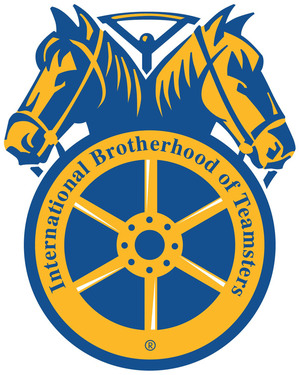CHICAGO, May 23, 2019 /PRNewswire/ -- The "Rebuild Illinois" capital plan recently released by Illinois Governor J.B. Pritzker proposed a 6% tax on daily and hourly garage parking, as well as a whopping 9% tax on monthly and annual garage parking be added on top of Chicago and Cook County's already high parking tax rates in order to finance improvements to Illinois' infrastructure. The addition of these new taxes would result in Chicago drivers paying excessive tax rates of between 32-40% simply to park one's car. The Parking Industry Labor and Management Committee strongly opposes this confiscatory tax hike, which is clearly aimed at Chicago and will further damage the business climate in the city and state.
Illinois residents already pay some of the highest parking taxes in the nation, furthering the negative perception that Illinois is too expensive for business. The current parking tax rate in Chicago – 26-31% – is considerably higher than any other major U.S. city, including New York (even Manhattan), Los Angeles, Washington, D.C., Miami, and Seattle, all of which tax parking at under 19%. This proposed infrastructure plan would add a new 6-9% state tax to the already excessive city and county parking taxes. No other state in the nation imposes a direct tax on parking. As such, this proposal would make Illinois the first state to saddle its drivers with such a burden. Since the vast majority of the parking tax revenue in Illinois would come from Chicago, this tax would really be a tax on the residents, workers, and visitors to Chicago.
Taxing parking overly burdens workers and deters business. The addition of a state parking tax will hurt Chicago and Illinois' efforts to retain current businesses and attract new ones. Forcing higher taxes on workers would essentially be equivalent to raising taxes on businesses as companies would be forced into offering transportation reimbursements or wage raises in order to retain essential employees. This tax would antagonize businesses by significantly increasing their costs and would likely motivate both employers and employees to move to cities and states where taxes are less burdensome.
Local business will be hurt and jobs will be lost as employers and visitors flee rising taxes. High parking tax rates negatively impact virtually every area of consumer-level business activity including hospitals, retail stores, hotels, theaters, sports arenas, museums, and other tourist attractions vital to the Illinois economy. All of these activities require parking facilities that are affordable, viable, and appealing. The addition of a state parking tax will deter transitory parkers who travel and spend their money on these activities. Should the Illinois economy experience a drop in tourism and revenue, businesses will be forced to shutter operations, an untold number of jobs will be lost, and the state will ultimately lose the income it seeks to generate for infrastructure projects.
Additional administrative costs will raise the state deficit and harm small businesses. The nature of parking/vehicle storage businesses varies extensively throughout Illinois, from professionally operated city garages to cash operations arising in cities and small towns for one-time events. Any revenue generated from a new state parking tax will be substantially reduced by the cost of the complex tax collection system needed to accommodate this wide range of operators. The cost of the new state employees who must be hired and trained to manage this new tax collection system would only further deepen the state deficit and add to Illinois' precarious budget issues. Furthermore, many parking operators operate on a cash basis, which will make collection, auditing, and processing of the tax that much more difficult. Likewise, a state parking tax will disproportionately harm the many small businesses that do not have the technology necessary to devise, implement, or publicize a multi-level tax system.
The proposed state parking tax will add to budget problems rather than help solve them.
"The math is simple: When workers find it too expensive to commute to the city, businesses move out. When individuals find parking prohibitively expensive, they do their shopping elsewhere. Less employers plus fewer customers means less tax revenue and fewer jobs," said John Coli, Jr., Secretary-Treasurer of Teamsters Local 727. "The impact of a new state parking tax will stifle economic development in Chicago and impact all of Illinois. It will hurt workers and it will hurt businesses. We must find a better way."
Coli, along with members of the Parking Industry Labor Management Committee (PILMC), challenged Governor Pritzker today to find an alternative revenue stream to "Rebuild Illinois."
"We must find a method for generating revenue that relies on all of Illinois and does not saddle Chicago with the burden. Taxing city residents, workers, and visitors to death for the sake of infrastructure will prove to be a failure," said Coli.
Teamsters Local 727 represents nearly 10,000 hardworking men and women throughout the Chicago area, including nearly 4,000 parking and valet industry professionals.
Contact:
Maggie Ward
(847) 696-7500
SOURCE Teamsters Local 727

WANT YOUR COMPANY'S NEWS FEATURED ON PRNEWSWIRE.COM?
Newsrooms &
Influencers
Digital Media
Outlets
Journalists
Opted In




Share this article